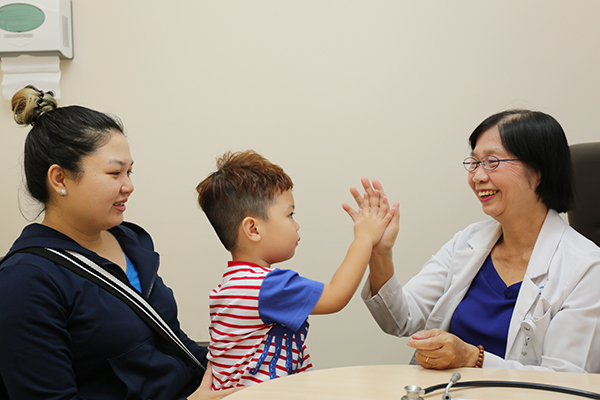Respiratory tract infections (RTIs) are common in a pediatric practice. RTIs are estimated to cause 4 million deaths annually in children due to acute respiratory infections, mainly pneumonia, according to the World Health Organization (WHO).
Notably, Acute respiratory infections (ARIs) contribute to major disease associated mortality and morbidity among children under 5 years . ARIs in children take a heavy toll on life, especially where medical care is not available or is not sought. and a burden of disease for society.
City International Hospital, Head of Pediatrics Department, Dr. Nguyen Bach Hue shared: "Pulmonary infections are most commonly bacterial or viral. Viruses are responsible for 40 to 50 percent of infection in infants and children hospitalized for pneumonia in developing countries. The most commonly detected viruses are respiratory syncytial virus (RSV), Measles virus, parainfluenza viruses, influenza type A virus, and adenoviruses are the most important causes of viral pneumonia. In developing countries like our country, are The cause of bacterial infection is still considered to be the cause of dangerous acute respiratory infections for children, led by Hemophilus influenzae type b (Hib), followed by pneumococcal with scientific name. are Streptococcus Pneumonia, streptococci, staphylococci, Bordetella bacteria, bacteria Klebsiella pneumoniae, bacteria Chlamydia trachomatis ... "
Head of Pediatrics Department: Dr. Nguyen Bach Hue recommend to take your child to a health professional if you see symptoms like fever, continuous cough, runny nose, difficulty breathing.
The doctor also explained: “the typical manifestation of common acute respiratory infections in children include: mild fever (38 degrees celsius) or high fever (39-40 degrees celsius), dry cough, sputum, coughing or continuous cough, runny nose, difficulty breathing.
Other symptoms such as excessive crying, headache (older children), digestive disorders: vomiting, abdominal pain, bloating, anorexia, diarrhea. One characteristic to keep in mind is that the child's progress from mild to severe is very fast, so it is important to evaluate, classify and determine timely treatment: nasopharyngitis; Acute sinus rhinitis; Sore throat; Tonsillitis; VA inflammation; Acute inflammation of the level; Laryngitis and bronchitis of acute bronchitis; Pneumonia.
The best treatment is prevention. Parents and family members should be educated about washing hands, cleaning environmental surfaces, isolating infants and children with infection, and avoiding crowded places such as busy daycare centers.
How can you care for your child at home?
The best treatment is prevention by getting regular medical checkups, most children with mild or moderate acute respiratory infections are appointed by the doctor for care, follow-up and treatment at home, namely: keep children feeding and feeding; give children enough water; If coughing makes children uncomfortable crying or vomiting a lot, they should give safe cough medicines, clear their nose in simple ways; It is not necessary to use antibiotic therapy in most cases, if it is necessary to use it, it is necessary to consult and appoint the treating doctor.
Prevention
- Isolating infants and children with infection, and avoiding crowded places such as busy daycare centers.
- Limit time outdoors between 11 a.m. - 4 p.m. during the changes in weather.
- Avoid fans that flow air directly into a child while playing or sleeping
- Have your child fully vaccinated according to the National Immunization Program.
- Nasal saline rinses help keep the nose, sinus passages, and throat clear.
- Keep your child warm while sleeping
- Avoid cold drinks such as ice cream / iced water
- Avoid Smoking inside the house, keep your home clean every day
- Wash your hands before contacting your child
- adequate amounts of required supplements increase child-resistant
For appointment or more information about the services provided by Pediatrics Department, please contact:
Pediatrics Department
Patient service: (8428) 6280 3333, ext. 8158 or 8191
City International Hospital
- Address: No. 3, 17A Street, Binh Tri Dong B Ward, Binh Tan Dist. (Next to AEON Mall Binh Tan). Ho Chi Minh City.
- Website: https://cih.com.vn/en/
- Email: This email address is being protected from spambots. You need JavaScript enabled to view it.










